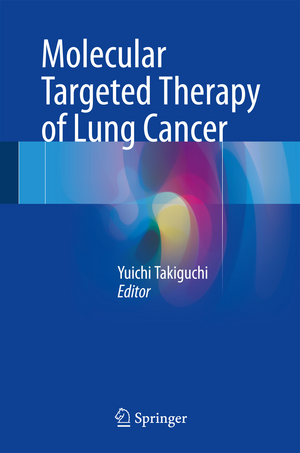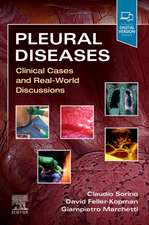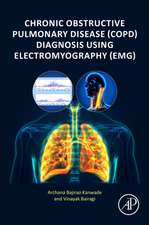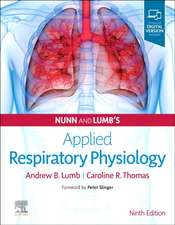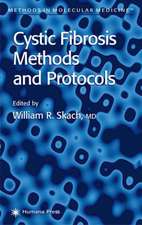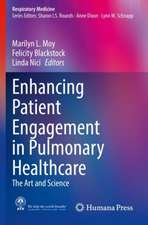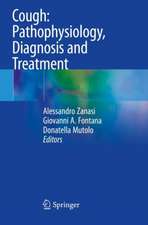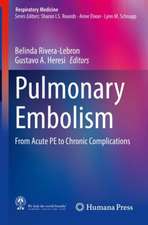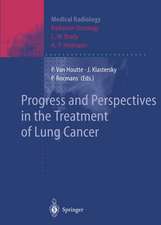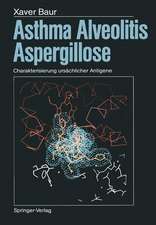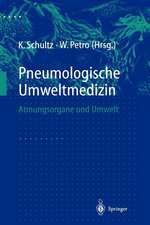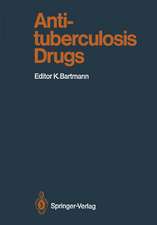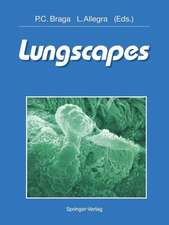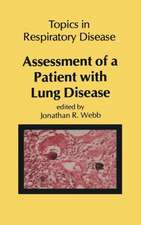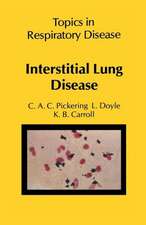Molecular Targeted Therapy of Lung Cancer
Editat de Yuichi Takiguchien Limba Engleză Hardback – 5 feb 2017
Edited and authored by opinion leaders, Molecular Targeted Therapy of Lung Cancer provides a comprehensive overview of the disease and its treatments. It is a valuable resource for graduate students, post-doctoral fellows and faculty staff, as well as researchers involved in clinical and translational research on lung cancer, helping promote new ideas for further advances.
| Toate formatele și edițiile | Preț | Express |
|---|---|---|
| Paperback (1) | 1350.48 lei 38-44 zile | |
| Springer Nature Singapore – 14 iul 2018 | 1350.48 lei 38-44 zile | |
| Hardback (1) | 982.59 lei 38-44 zile | |
| Springer Nature Singapore – 5 feb 2017 | 982.59 lei 38-44 zile |
Preț: 982.59 lei
Preț vechi: 1034.30 lei
-5% Nou
Puncte Express: 1474
Preț estimativ în valută:
188.04€ • 204.18$ • 157.95£
188.04€ • 204.18$ • 157.95£
Carte tipărită la comandă
Livrare economică 18-24 aprilie
Preluare comenzi: 021 569.72.76
Specificații
ISBN-13: 9789811020001
ISBN-10: 9811020000
Pagini: 327
Ilustrații: X, 327 p. 54 illus., 48 illus. in color.
Dimensiuni: 155 x 235 x 26 mm
Greutate: 0.78 kg
Ediția:1st ed. 2017
Editura: Springer Nature Singapore
Colecția Springer
Locul publicării:Singapore, Singapore
ISBN-10: 9811020000
Pagini: 327
Ilustrații: X, 327 p. 54 illus., 48 illus. in color.
Dimensiuni: 155 x 235 x 26 mm
Greutate: 0.78 kg
Ediția:1st ed. 2017
Editura: Springer Nature Singapore
Colecția Springer
Locul publicării:Singapore, Singapore
Cuprins
Part I Diagnosis.- 1 Classification of adenocarcinoma of the lung - with a special reference to prognosis .- 2 Screening lung cancer with low dose CT combined with molecular markers.- 3 PET-CT, bio-imaging for predicting prognosis and response to chemotherapy in patients with lung cancer.- 4 Methods in molecular diagnosis.- 5 Accurate nodal staging and biomarker testing with endobronchial ultrasound-guided transbronchial needle aspiration.- 6 Next generation sequencing and bioinformatics.- 7 Companion Diagnostics.- Part II Treatment.- 8 Small cell lung cancer and molecular targeted therapy.- 9 Locally advanced non-small cell lung cancer and molecular targeted therapy.- 10 EGFR mutant.- 11 ALK mutant.- 12 Minor-driver mutant.- 13 Mechanism of resistance to targeted molecular therapy.- 14 Immunotherapy.- 15 Lung cancer complicated with interstitial lung diseases.- 16 Management of adverse effects by molecular targeted therapy and immunotherapy.- Part III Evaluation.- 17 Health related-quality of life in molecular targeted therapy.- 18 Gene signature.- Part IV Novel approach.- 19 Targeting epithelial-mesenchymal transition and cancer stem cell- 20 Targeting the Lung Cancer Microenvironment: Harnessing Host Responses.
Notă biografică
Professor Yuichi Takiguchi
Department of Medical Oncology, Chiba University Graduate School of Medicine
Textul de pe ultima copertă
This book discusses the latest molecular targeted therapy of lung cancer including its evaluation and future directions. It clearly illustrates the initial dramatic effectiveness of molecular targeted therapy, recurrence of the disease, overcoming the wide variety of resistance mechanisms using new-generation molecular targeted agents and potential novel approaches. It also outlines the increasing necessity for new diagnostic technology and strategies for managing different adverse effects and novel methods for evaluating effectiveness and safety.
Edited and authored by opinion leaders, Molecular Targeted Therapy of Lung Cancer provides a comprehensive overview of the disease and its treatments. It is a valuable resource for graduate students, post-doctoral fellows and faculty staff, as well as researchers involved in clinical and translational research on lung cancer, helping promote new ideas for further advances.
Edited and authored by opinion leaders, Molecular Targeted Therapy of Lung Cancer provides a comprehensive overview of the disease and its treatments. It is a valuable resource for graduate students, post-doctoral fellows and faculty staff, as well as researchers involved in clinical and translational research on lung cancer, helping promote new ideas for further advances.
Caracteristici
Discusses the latest molecular targeted therapy of lung cancer including its evaluation and future directions
Describes the increasing necessity for new diagnostic technology and strategies for managing various adverse effects and novel methods for evaluating effectiveness and safety
Provides a comprehensive overview, which will provide the foundation for new ideas for further advances
Describes the increasing necessity for new diagnostic technology and strategies for managing various adverse effects and novel methods for evaluating effectiveness and safety
Provides a comprehensive overview, which will provide the foundation for new ideas for further advances
